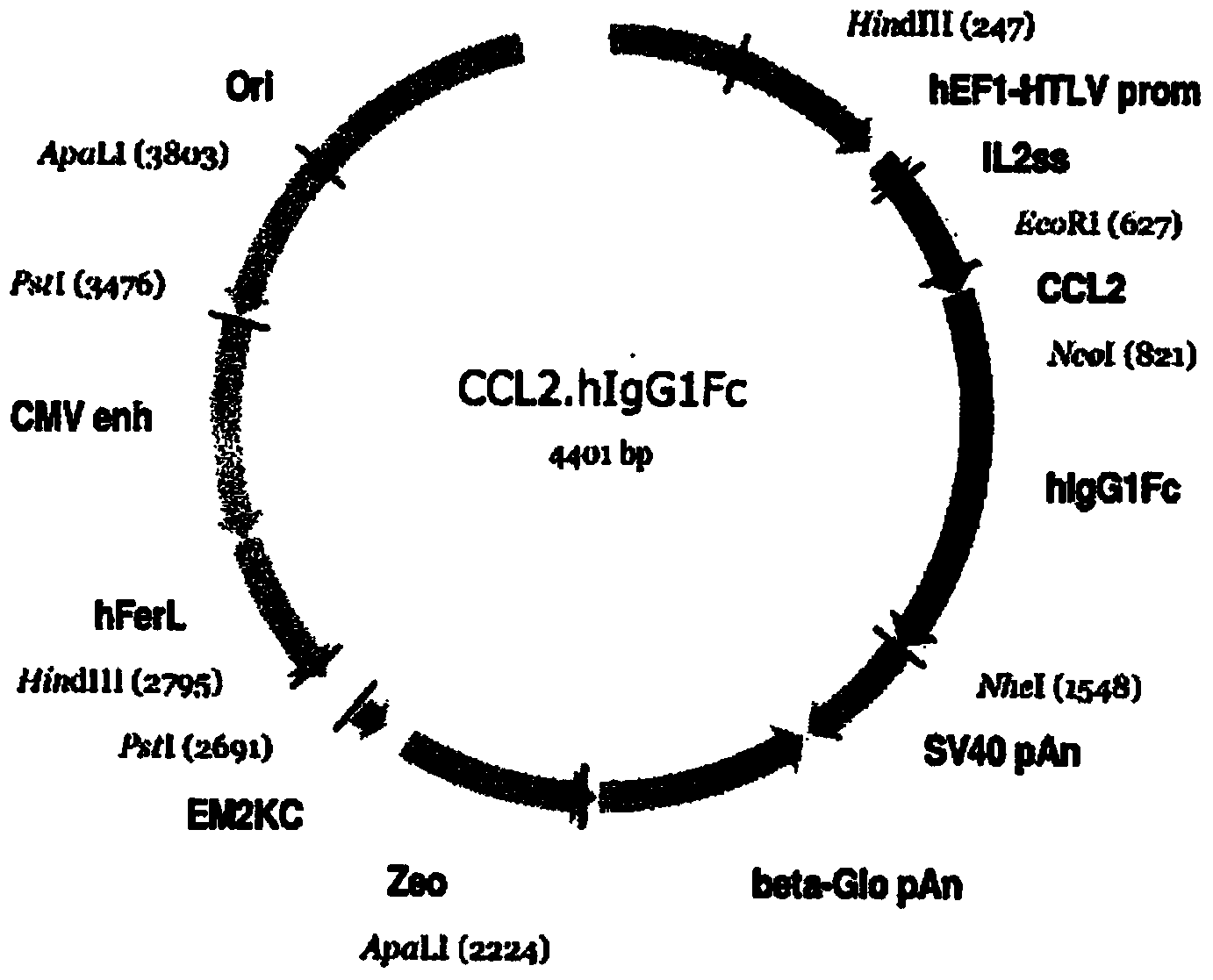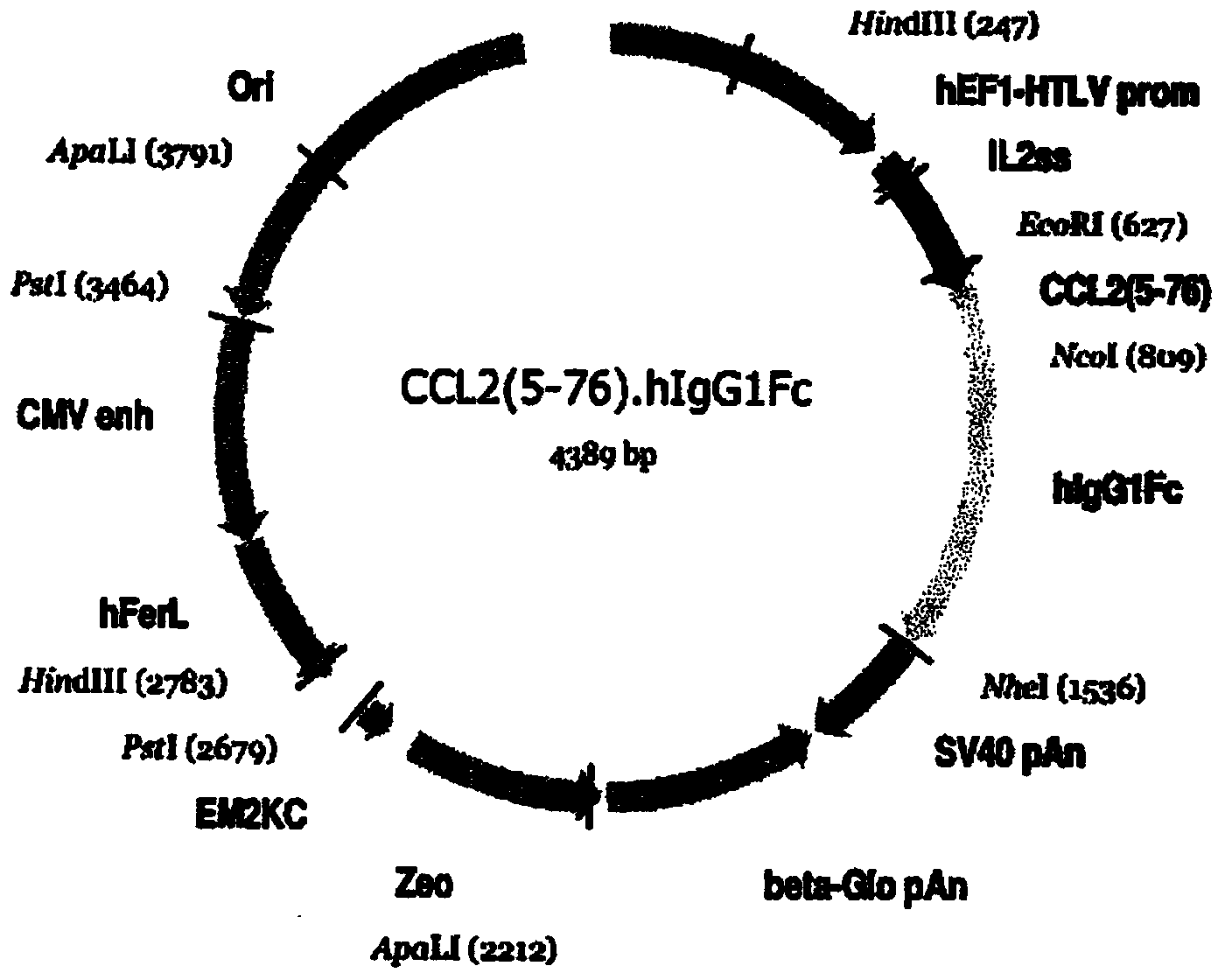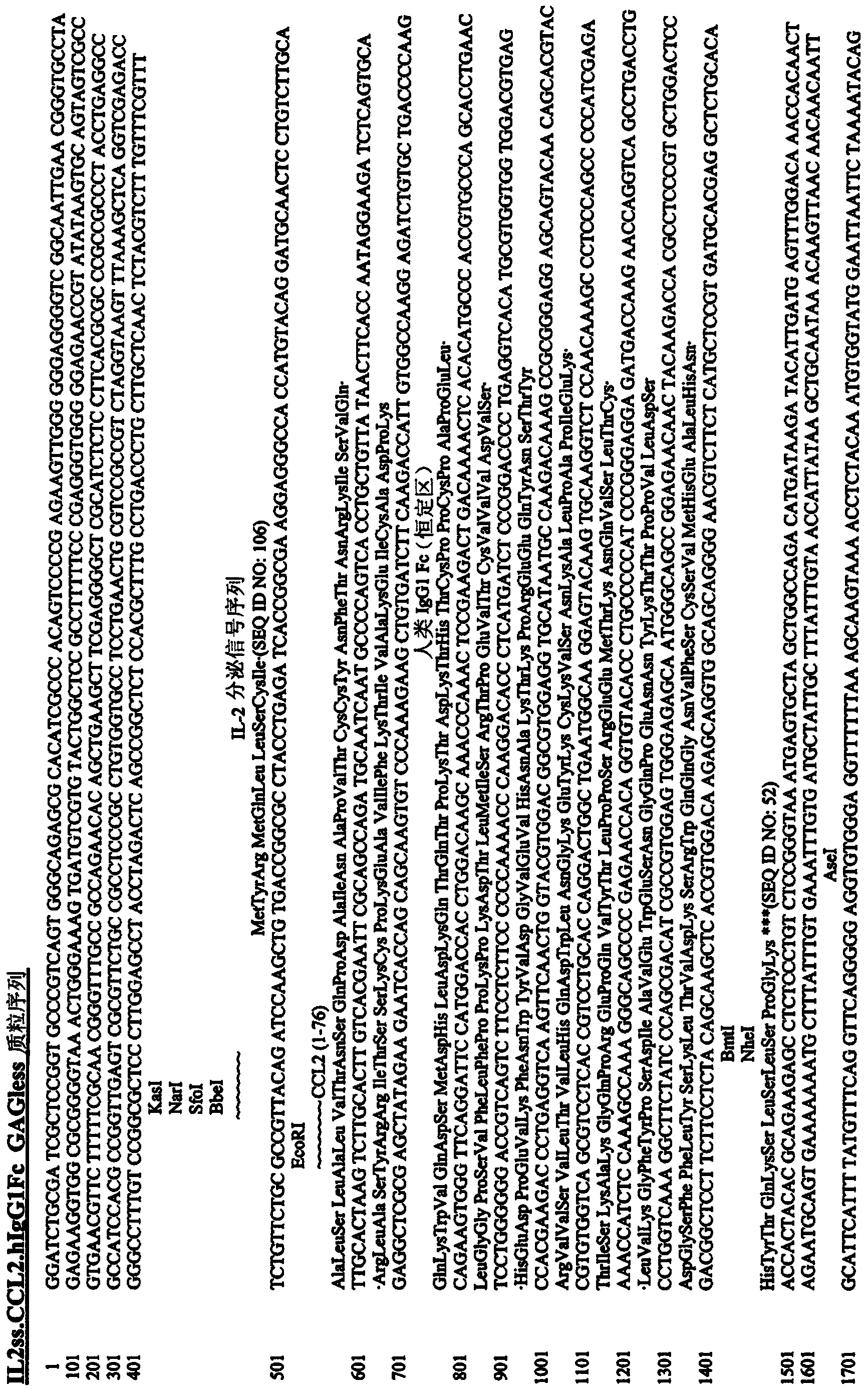Chemokine-immunoglobulin fusion polypeptides, compositions, method of making and use thereof
An immunoglobulin and fusion polypeptide technology, which is applied in the fields of chemokine-immunoglobulin fusion polypeptides, compositions and their preparation and use, and can solve the problems of chronic unhealed wounds, reduction and the like
- Summary
- Abstract
- Description
- Claims
- Application Information
AI Technical Summary
Problems solved by technology
Method used
Image
Examples
Embodiment 1
[0180] Embodiment 1: Generation of plasmid expression vector
[0181] pFUSE-hIgG1-Fc1, pFUSE-hIgG2-Fc1, pFUSE-hIgG3-Fc1, and pFUSE-hIgG4-Fc1 vectors from InvivoGen (San Diego, CA) were used to generate chemokine-hIgG4-Fc1-expressing immunoglobulins using standard molecular biology methods. Expression vector of protein fusion polypeptide. Examples of such expression vectors are shown in Figures 1-10.
Embodiment 2
[0182] Example 2: Expression of Chemokine Receptors in Breast Cancer Cell Lines
[0183] Experiments were performed to compare the expression levels of CXCR7 and CXCR3 in breast cancer tissues at different stages, in non-neoplastic breast tissues. Non-neoplastic breast tissue did not express detectable levels of CXCR7. CXCR7 expression was significantly higher in advanced breast cancer tissues compared with non-neoplastic breast tissues. Both CXCR7 and CXCR3 mRNA were elevated in breast cancer cell line (MDA-MB-231 ) compared to normal breast cells (MCF-10A).
Embodiment 3
[0184] Example 3: var-CXCL11-IgG fusion polypeptide inhibits the activation of CXCR7 and CXCR3 in breast cancer cells
[0185] Using Amnis ImageStream analysis, the inventors found that CXCL11 stimulates the aggregation and rapid desensitization of CXCR3 and CXCR7, ie CXCL12 regulates modest CXCR7 clustering, and adrenomedullin (AM) stimulates CXCR3 and CXCR7 clustering. CXCL11-IgG fusion polypeptide abolishes CXCR3 and CXCR7, but not CXCR4, clustering and desensitization by CXCL11, CXCL12 and AM.
PUM
| Property | Measurement | Unit |
|---|---|---|
| Molecular weight | aaaaa | aaaaa |
| Molecular weight | aaaaa | aaaaa |
Abstract
Description
Claims
Application Information
 Login to View More
Login to View More - R&D
- Intellectual Property
- Life Sciences
- Materials
- Tech Scout
- Unparalleled Data Quality
- Higher Quality Content
- 60% Fewer Hallucinations
Browse by: Latest US Patents, China's latest patents, Technical Efficacy Thesaurus, Application Domain, Technology Topic, Popular Technical Reports.
© 2025 PatSnap. All rights reserved.Legal|Privacy policy|Modern Slavery Act Transparency Statement|Sitemap|About US| Contact US: help@patsnap.com



